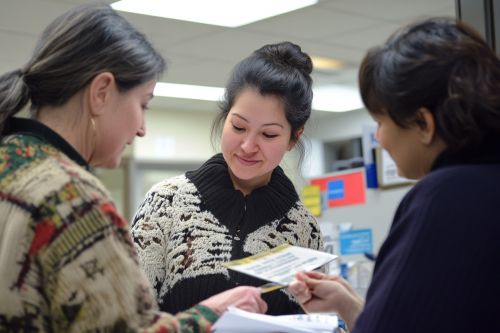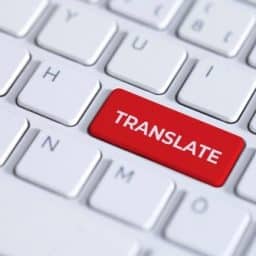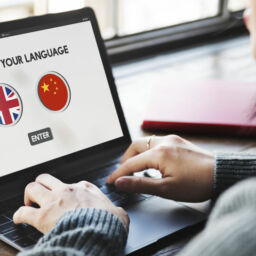

Imagine needing to get a social security number or a work permit in a country where you do not speak the language. How would you feel? Anxious and frustrated? That is precisely the kind of challenge newcomers face abroad. Only translation can help them.
Translation for public administration helps communicate with diverse resident groups. Translating official documents, websites, and news is essential in multicultural cities like New York or London. It ensures everyone has equal access to information.
Contents
Importance of communication between governments and citizens
Communication between governments and citizens is the base of a democratic society. It ensures:
- Citizens are well-informed about their rights and responsibilities.
- Trust in public institutions.
- Cooperation and social engagement.
- The quality of public services.



History of translation in citizen communication
The earliest instances of translations in public administration date back to ancient times. In Ancient Egypt, pharaohs asked translators to communicate with representatives of foreign nations. Similarly, in the Roman Empire, translators were essential during negotiations with the people inhabiting territories conquered by the Romans. Translation facilitated communication and ensured political stability.
Over time, the role of translations in public administration evolved. In the Middle Ages, translations from Latin to vernacular languages spread laws and knowledge among the populace. During the Renaissance, translating diplomatic documents became a standard in international politics.
After World War II, translators helped during the Nuremberg Trials. They made testimonies and documents understandable in four languages: English, French, Russian, and German. Their work ensured a fair and transparent trial.
The establishment of the United Nations in 1945 was a shift in the world’s history. Within the organisation, translators ensure effective communication in six official languages: English, French, Spanish, Russian, Arabic, and Chinese. Without them, international cooperation on such a scale would be virtually impossible.
Importance of translation for modern states
Modern cities host millions of people from various countries. Translation helps them understand local laws, access public services, and participate in community life.
The United States offer many municipal services in Spanish to better serve the 48 million Spanish speakers. In Sweden, integration programs for immigrants include translating educational materials and information about civil rights, helping jobseekers acclimate faster. Translations also aid the education of children from immigrant families.
Medical translation saves lives. Doctors must accurately understand patients to diagnose and treat them correctly. Many hospitals employ translators or use phone translation services to meet these needs.
In courts, translators ensure a fair trial. In the U.S., non-English speakers have the right to a translator. A language barrier often leads to serious consequences. Incorrectly filled forms result in denied social benefits, administrative delays, and confusion. Translation reduces the risk of such errors.
Many countries implement translation in public administration. In Australia, the Translating and Interpreting Service (TIS National) offers interpreting and written translations in over 160 languages. Local non-English-speaking citizens can easily access government services. TIS National is used by offices, schools, hospitals, and other public institutions.
In the Netherlands, the Ministry of the Interior has special translation programs to help immigrants integrate and understand local laws. Information on labour laws, education, and health is regularly translated into minority languages, aiding newcomers in understanding their rights and responsibilities.
Forms of translation in citizen communication
Simultaneous and consecutive interpreting is used in real-time during meetings, conferences, and official conversations. Written translations include legal documents, official forms, informational brochures, and websites.



Challenges in citizen communication
The quality of translations is a major challenge for public administration. Inaccurate work leads to serious misunderstandings and errors. However, high-quality translation involves significant costs.
Hiring professional translators, training them, and using translation tools are expensive. For many offices in smaller towns, this poses a considerable budgetary strain. Administrations must balance the need for accessible translations with financial limitations.
It is not enough to simply translate words; the cultural context is equally important. Legal and medical terms often lack direct equivalents in another language. Moreover, certain phrases might be acceptable in one country but offensive or confusing in another.
Why should you choose us for administrative translation?
Our agency offers professional services tailored to the needs of public administration. We have a team of qualified translators with years of experience in official translations.
Experts from Skrivanek are well-versed in legal, medical, and administrative terminology. We provide quick turnaround times without compromising on the quality of our work. Your documents will always be ready on time. We use the latest security technologies and strict data protection procedures to ensure complete confidentiality and security of your materials.
We offer translations in over 100 languages, including rare ones. In the past we have worked with numerous government and local institutions and provided translations of documents, informational materials, and websites. Contact us for a personalised offer.
Photo: AI















